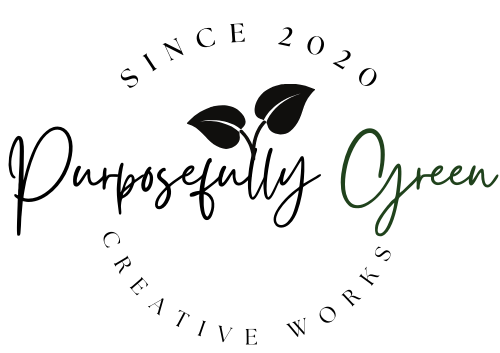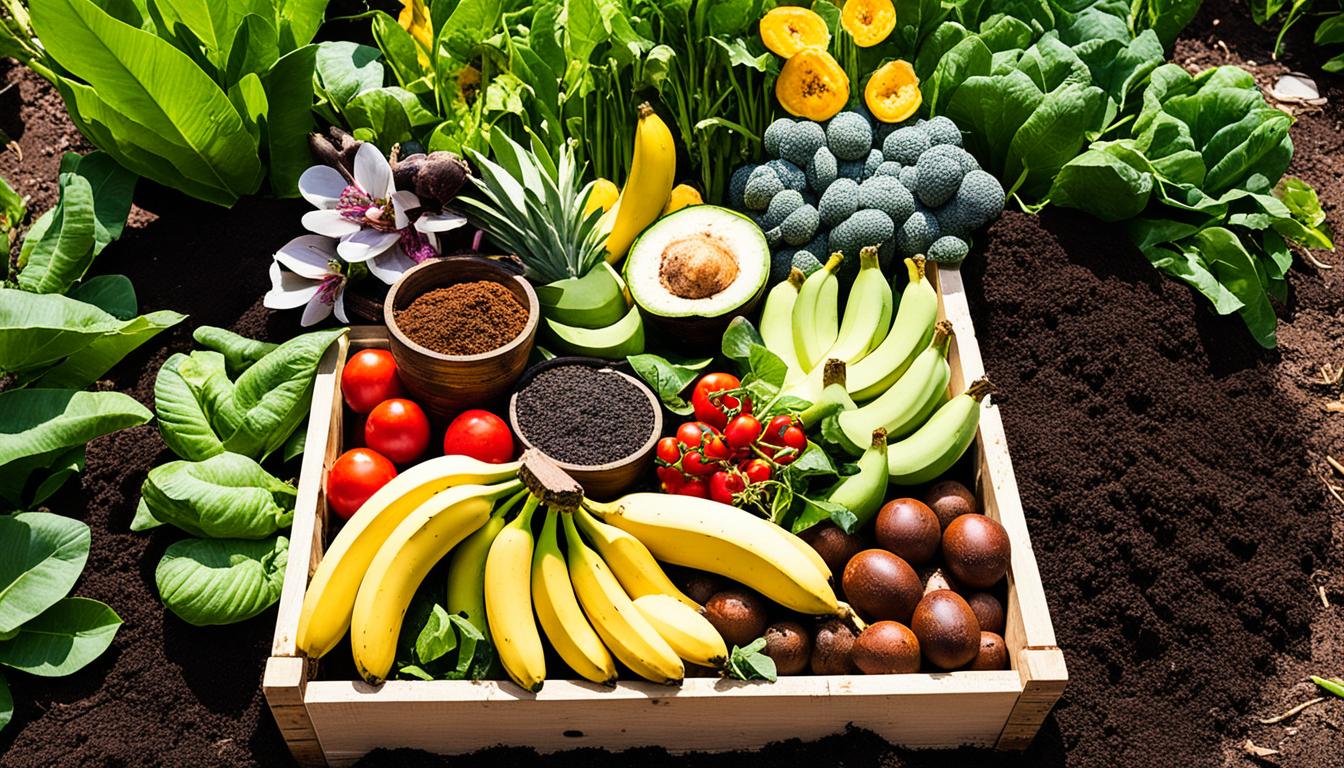Gardening is a rewarding hobby, but sometimes plants need a little extra boost to thrive. Commercial fertilizers may contain chemicals, so why not try making your own DIY garden fertilizers? By using simple ingredients found at home, you can create nutrient-rich soil amendments for a lush and thriving garden. Let’s explore some homemade recipes for DIY garden fertilizers that are easy to make and beneficial for your plants.
Key Takeaways:
- Create nutrient-rich soil amendments with DIY garden fertilizers
- Use simple ingredients found at home for organic gardening
- Nourish your plants with homemade plant food
- Improve soil fertility with natural garden fertilizers
- Enhance plant growth and yield with nutrient-rich soil amendments
Nitrogen Boost Fertilizers
Nitrogen is an essential nutrient for plant growth, promoting lush green foliage and robust plants. To provide your plants with a nitrogen boost, there are several homemade fertilizers you can make using readily available ingredients.
One of the easiest and most economical ways to boost nitrogen levels in your garden is by creating grass clipping tea. This DIY fertilizer utilizes fresh grass clippings, which are rich in nitrogen.
Here’s how to make grass clipping tea:
- Fill a bucket one-third full with fresh grass clippings.
- Top off the bucket with clean water.
- Let the mixture steep for about two weeks.
- Dilute the tea by mixing it with water.
- Apply the diluted grass clipping tea to the base of your plants.
Manure Tea
Another option for nitrogen-rich fertilizer is manure tea. This tea is made by steeping livestock manure or store-bought manure in water.
Here’s how to make manure tea:
- Place the manure in a bucket.
- Add water to cover the manure.
- Let the mixture steep for three days.
- Strain out the solids.
- Dilute the tea with water.
- Apply the diluted manure tea to your plants.
Ammonia Fertilizer
If you’re looking for a quick and effective DIY nitrogen fertilizer, ammonia can be used. Ammonia is commonly found in cleaning products and can be diluted with water to create a nitrogen-rich fertilizer.
Note: Ammonia should be used with caution and only in small amounts, as it can be harmful to plants if applied in excess.
By utilizing these nitrogen boost fertilizers, you can provide your plants with the essential nutrients they need for healthy growth.
Boosting Potassium Levels
Potassium is a crucial nutrient for plant growth and is involved in various physiological processes. To ensure your plants receive an ample supply of this essential mineral, there are a couple of homemade fertilizers you can easily make at home.
Dandelion Tea
If you have dandelions in your garden, don’t consider them just pesky weeds. Dandelions can be transformed into a potassium-rich homemade fertilizer tea. Here’s how to make it:
- Harvest dandelions, making sure to avoid those treated with herbicide.
- Place the dandelions in a bucket.
- Cover the dandelions with water.
- Let the mixture ferment for several weeks.
- Strain the dandelion tea and dilute it.
- Apply the diluted tea to your plants to provide them with a natural potassium boost.
Banana Peel Fertilizer
Another great source of potassium can be found in your kitchen – banana peels. Don’t throw them away; instead, use them to create a nutrient-packed fertilizer. Here’s how to do it:
- Bury banana peels in the soil near your plants.
- Alternatively, make a banana peel tea by steeping the peels in water for several days.
- After steeping, use the banana peel tea to water your plants, providing them with a natural potassium boost.
By utilizing these simple and accessible methods, you can ensure your plants receive the necessary potassium for their growth and health.
Phosphorus-Rich Fertilizers
In order to promote healthy plant growth and facilitate energy transfer, it is crucial to provide your garden with an adequate supply of phosphorus. One excellent source of phosphorus is bone meal, a homemade fertilizer that is both natural and effective. By incorporating bone meal into your homemade fertilizer teas, you can give your fruiting and flowering plants the phosphorus boost they need to thrive.
To create your own bone meal, follow these simple steps:
- Boil clean bones until they turn white.
- Place the boiled bones in the oven and bake them until dry.
- Grind the dry bones into a fine powder.
Once you have obtained the bone meal, you can add it to your homemade fertilizer mixtures. The phosphorus in bone meal will help enhance root development, improve flowering, and increase the production of fruits and vegetables.
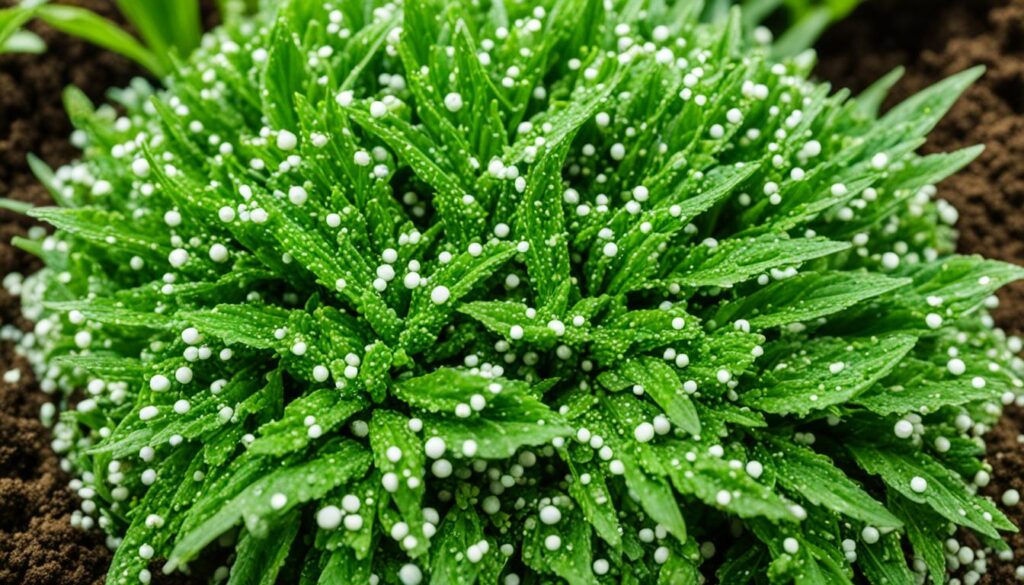
| Benefits | Description |
|---|---|
| Enhanced Root Development | Bone meal contains phosphorus, which stimulates root growth and helps plants establish strong and healthy root systems. |
| Improved Flowering | The phosphorus in bone meal supports the production of vibrant and abundant flowers, enhancing the overall beauty of your garden. |
| Increased Fruit and Vegetable Yield | By providing plants with a phosphorus boost, bone meal encourages higher fruit and vegetable production, leading to a bountiful harvest. |
With bone meal as a phosphorus-rich fertilizer, you can ensure optimal nutrient levels in your garden soil, promoting the healthy growth and development of your plants.
Utilizing Weeds and Kitchen Scraps
When it comes to creating homemade fertilizers, you don’t have to look any further than your own backyard and kitchen. Weeds and kitchen scraps can be repurposed into valuable and nutrient-rich additives that nourish your plants. Let’s explore some DIY fertilizers that can be made from these readily available resources.
Weed Tea
Weeds may seem like a nuisance in your garden, but they can actually be used to create a potent fertilizer known as weed tea. To make weed tea, simply fill a bucket with water and add fresh weeds. Allow the mixture to steep for one to two weeks, then strain the tea. The resulting liquid is an excellent source of nutrients for your plants. Apply the weed tea to the soil around your plants to give them a natural boost.
Compost Tea
Compost tea is another fantastic way to harness the power of kitchen scraps and create a nutrient-rich fertilizer. To make compost tea, combine food scraps, such as fruit and vegetable peels, with water in a container. Let the mixture steep for a few days, stirring occasionally. The water will extract the nutrients from the scraps, creating a potent liquid fertilizer. Strain the tea before use and apply it to your plants for a natural and sustainable source of nourishment.
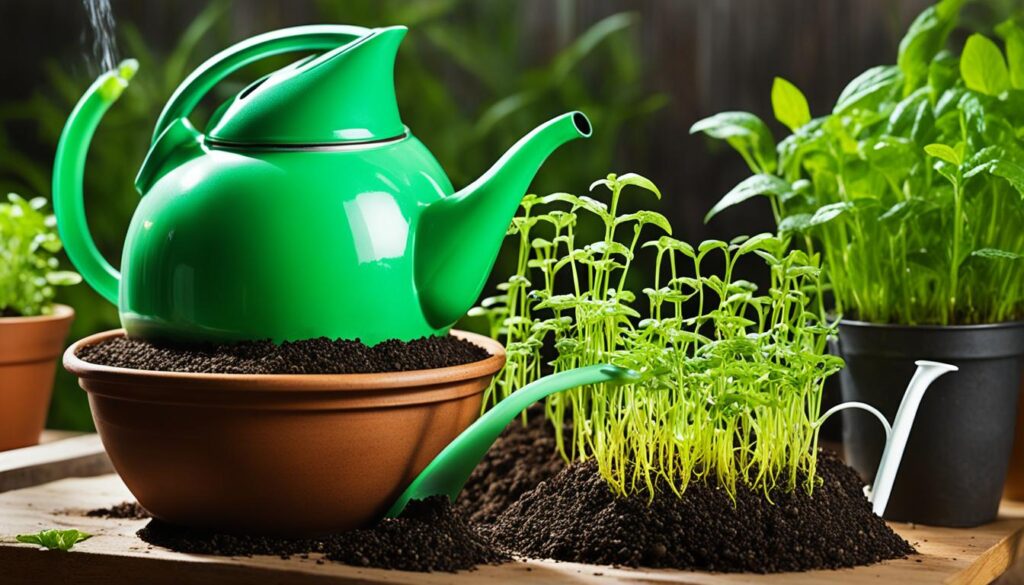
Coffee Grounds Fertilizer
If you’re a coffee lover, you’ll be pleased to know that your used coffee grounds can be repurposed as a natural fertilizer. Coffee grounds are rich in nitrogen, which is essential for plant growth. You can work the coffee grounds into the soil around your plants or use them as a mulch to provide a slow-release source of nutrients. This not only helps your plants grow healthy and strong but also reduces waste by giving your coffee grounds a second life.
Eggshell Fertilizer
Don’t throw away those eggshells! Crushed eggshells are an excellent source of calcium for your plants. Calcium is essential for cellular growth and helps prevent diseases like blossom end rot in tomatoes and peppers. To make an eggshell fertilizer, simply crush the shells into small pieces and bury them in the soil around your plants. You can also create an eggshell spray by boiling the shells in water. Let the mixture cool, strain it, and use the liquid to nourish your plants.
Comparison of Weed Tea, Compost Tea, Coffee Grounds Fertilizer, and Eggshell Fertilizer
| Fertilizer | Key Benefits |
|---|---|
| Weed Tea | – Provides a nutrient-rich boost for plants – Utilizes weeds that would otherwise go to waste |
| Compost Tea | – Contains a variety of nutrients and beneficial microorganisms – Uses kitchen scraps to create a sustainable fertilizer |
| Coffee Grounds Fertilizer | – Rich in nitrogen for healthy plant growth – Repurposes used coffee grounds to reduce waste |
| Eggshell Fertilizer | – Provides calcium for strong cellular growth – Prevents diseases in certain plants |
By utilizing weeds and kitchen scraps, you can create homemade fertilizers that are not only cost-effective but also environmentally friendly. So don’t let those weeds and food scraps go to waste – turn them into valuable resources that will nourish your garden and contribute to a greener, healthier planet.
Seaweed and Fish-Based Fertilizers
Seaweed and fish waste offer excellent natural alternatives for homemade fertilizers that can promote the growth and health of your plants. Seaweed is a nutrient-rich organic matter that can be easily collected from the shore and used to create a homemade fertilizer tea.
To make seaweed fertilizer, follow these simple steps:
- Collect seaweed from the shore.
- Rinse the seaweed thoroughly to remove any salt or debris.
- Chop the seaweed into small pieces to enhance the extraction of nutrients.
- Steep the chopped seaweed in water for a few weeks.
- After the steeping period, strain the tea to remove any solid particles.
- Dilute the seaweed fertilizer tea with water.
- Use the diluted fertilizer to water your plants.
Fish waste, including fish parts and aquarium water, is another valuable source of nutrients for your plants. By creating a fish waste fertilizer, you can efficiently recycle the nutrients found in fish waste and provide them to your plants. Here’s how:
- Collect fish waste, such as fish scraps or aquarium water.
- Place the fish waste in a container with water.
- Allow the mixture to steep for a few weeks.
- After the steeping period, strain the liquid to remove any solid particles.
- Use the strained liquid as a fertilizer for your plants.
Both seaweed fertilizer and fish waste fertilizer are rich sources of nutrients that can enhance soil fertility and promote robust plant growth. Incorporating these natural fertilizers into your gardening routine can ensure healthier and more productive plants.
Economical and Convenient Fertilizers
In this section, I will share two economical and convenient options for homemade fertilizers: molasses fertilizer and vinegar fertilizer.
Molasses Fertilizer
If you’re looking to increase the presence of beneficial bacteria in your soil, molasses is a great ingredient to use. Organic molasses can be mixed with water to create a homemade fertilizer tea that promotes optimal plant growth. Here’s how you can make it:
- Mix 1 tablespoon of organic molasses with 1 gallon of water.
- Stir well to ensure the molasses is fully dissolved.
- Apply the molasses fertilizer to your plants once a week, either by watering the soil or spraying it on the leaves.
This molasses fertilizer tea provides plants with essential nutrients and helps stimulate microbial activity in the soil, leading to healthier and more productive plants.
Vinegar Fertilizer
Vinegar, specifically white vinegar, can be a beneficial natural fertilizer for certain plants. The acetic acid in vinegar provides nutrients that help plants thrive. Here’s how you can use vinegar as a fertilizer:
- Dilute white vinegar with water in a 1:10 ratio. For example, mix 1 cup of vinegar with 10 cups of water.
- Stir well to ensure the vinegar is thoroughly mixed with the water.
- Use the diluted vinegar mixture to water your plants every few months.
It’s important to note that vinegar fertilizer is most effective for acid-loving plants, such as azaleas, rhododendrons, and blueberries. For other types of plants, it’s best to use vinegar fertilizer sparingly to avoid disrupting the pH balance of the soil.
Using these economical and convenient homemade fertilizers can help you maintain a healthy garden without relying on store-bought alternatives. Try incorporating molasses fertilizer and vinegar fertilizer into your gardening routine and see the positive impact they have on your plants.
| Fertilizer | Benefits |
|---|---|
| Molasses Fertilizer | Promotes beneficial bacteria in the soil |
| Vinegar Fertilizer | Provides nutrients for specific plants |
Quick Fixes and Natural Additives
Sometimes you need a quick and easy fertilizer. When time is of the essence, there are a few options that can provide an instant boost to your plants. Let’s explore some quick fix solutions and natural additives that can help nourish your garden.
Quick Fix Fertilizer Tea
If your plants are in need of a rapid nutrient infusion, you can create a quick fix fertilizer tea. This DIY concoction combines various ingredients that are readily available in most households. Simply mix baking powder, ammonia, instant iced tea, molasses, crushed bone scraps, crushed eggshell, and dried banana peel with water. The combination of these ingredients provides a quick nutritional boost for your plants.
Baking Soda Fertilizer
Another quick and easy option is to use baking soda as a natural fertilizer. Baking soda, also known as sodium bicarbonate, can help regulate pH levels in the soil and promote healthier plant growth. To use baking soda as a fertilizer, simply mix it with water and apply it to your plants. This simple method can help maintain the optimal pH balance in your garden.
Fireplace Ash Fertilizer
If you have a fireplace, don’t let the ash go to waste. Fireplace ash can be a valuable source of nutrients for your plants. It is rich in calcium carbonate and potassium, which are essential for plant growth and development. Massage the fireplace ash into the soil to provide these essential nutrients to your plants. However, it’s important to use ash from untreated wood and avoid using it in excess, as it can raise the soil pH.
By incorporating these quick fixes and natural additives into your gardening routine, you can give your plants the nutritional support they need for optimal growth and productivity.
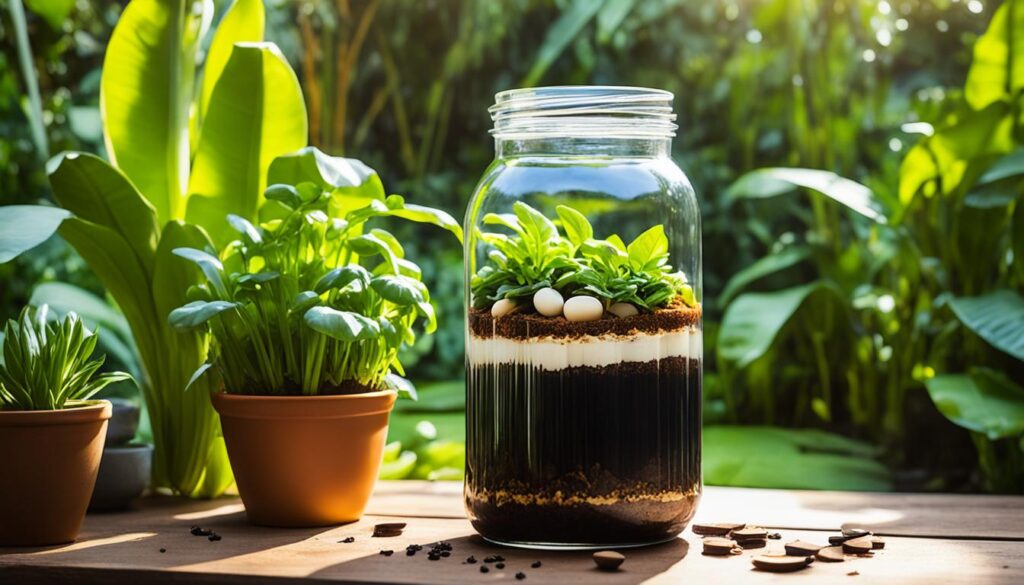
Animal Manure Fertilizers
Animal manure has long been recognized as a natural and effective fertilizer for plants. It provides essential nutrients that enhance soil fertility and promote healthy growth. There are two main ways to utilize animal manure as a fertilizer: composted manure tea and aged fresh manure.
Composted Manure Tea
To create composted manure tea, start by collecting a sufficient amount of animal manure, such as cow or chicken manure. Place the manure in a large container or barrel and cover it with water. Let it steep for a couple of weeks, ensuring that it remains agitated periodically to enhance the decomposition process. This allows the beneficial nutrients to leach into the water, creating a nutrient-rich tea.
Once the steeping process is complete, strain the mixture to remove any solid materials, leaving behind the liquid fertilizer. Dilute the composted manure tea with water to achieve the desired strength, typically around a 1:10 ratio of tea to water. Finally, apply the diluted tea to your plants’ root zone, ensuring thorough coverage for optimal nutrient absorption.
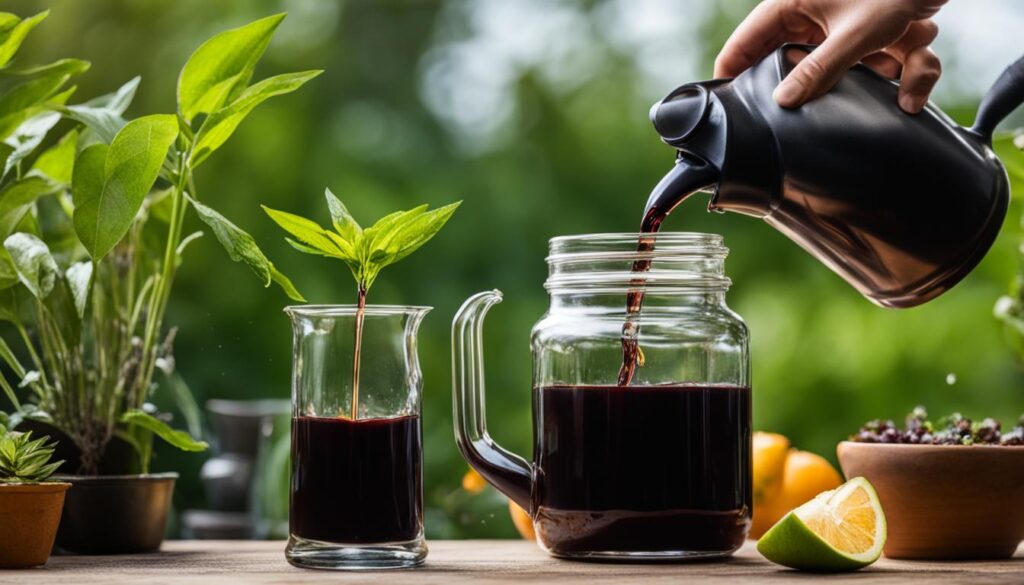
Aged Fresh Manure
If you have access to fresh animal manure, it can also be used as a fertilizer. However, it is important to note that fresh manure can be too potent and may burn your plants or introduce harmful pathogens. To prevent these issues, the manure should be aged for about six months before use.
During the aging process, harmful bacteria and excessive ammonia levels break down, making the manure safe for plants. You can store the fresh manure in a designated area, ensuring proper aeration and turning it periodically to facilitate decomposition. Once the aging process is complete, the manure will have transformed into a nutrient-rich fertilizer that you can safely apply to your garden.
Remember to always wear gloves when handling animal manure and thoroughly wash your hands afterward to prevent contamination.
| Advantages of Composted Manure Tea and Aged Fresh Manure | Drawbacks of Composted Manure Tea and Aged Fresh Manure |
|---|---|
|
|
“Animal manure is a valuable resource that can significantly improve the quality of your soil. By composting or aging it properly, you can harness the nutrients in the manure to benefit your plants while reducing waste and environmental impact.” – Garden Expert
Using Natural Ingredients for Homemade Fertilizers
Organic ingredients found in your home can be combined to create homemade fertilizers. By utilizing natural ingredients, you can create DIY organic fertilizers without any harmful chemicals. Here are some key natural ingredients and recipes:
Coffee Grounds
Don’t throw away your coffee grounds! They can be used as a nutrient-rich fertilizer for your plants. Sprinkle the grounds directly around the base of your plants or add them to your compost pile to enhance the nutrient content of your compost.
Banana Peels
Rich in potassium, banana peels can be a valuable addition to your homemade fertilizer. Simply cut up the peels into small pieces and bury them in the soil around your plants. As they decompose, the plants will absorb the potassium, promoting healthy growth.
Kitchen Scraps
Don’t let your kitchen scraps go to waste! Vegetable peels, eggshells, and other organic materials can be turned into nutrient-rich fertilizer. Collect them in a compost bin or pile, and let nature do its work. Over time, the scraps will break down and transform into compost that can be added to your garden soil.
Seaweed
Seaweed is an excellent source of essential micronutrients for plants. If you live near the coast, you can collect seaweed and rinse off any excess salt. Chop the seaweed into small pieces and steep it in water for a few weeks. Strain the liquid and dilute it with water before using it as a foliar spray or watering your plants.
Homemade Fertilizer Tea Recipe
If you prefer a liquid fertilizer, you can create a homemade fertilizer tea using natural ingredients. Here’s a simple recipe:
- Combine a handful of coffee grounds, crushed eggshells, and vegetable scraps in a large container.
- Add water and stir well to mix the ingredients.
- Let the mixture steep for a few days, stirring occasionally.
- Strain the liquid and dilute it with water at a 1:10 ratio.
- Use the homemade fertilizer tea to water your plants every couple of weeks.
By using these natural ingredients and homemade plant food recipes, you can provide your garden with the essential nutrients it needs to thrive. Experiment with different combinations and ratios to find what works best for your plants.
Note: Always remember to test the homemade fertilizers on a small area of your garden first and observe the plant’s reaction. This will help you determine if the fertilizer is suitable for your specific plant species and soil conditions.
Conclusion
In conclusion, DIY garden fertilizers provide a cost-effective and chemical-free solution for nurturing your plants. By using simple ingredients found at home, you can create nutrient-rich soil amendments that promote healthy plant growth. Whether you need a nitrogen boost, a potassium supplement, or a phosphorus-rich fertilizer, there are homemade recipes available to suit your plants’ specific needs.
Utilizing weeds, kitchen scraps, seaweed, and fish waste offers additional natural fertilizer options. These organic materials can be transformed into nutrient-rich teas or added directly to the soil, providing a sustainable and eco-friendly approach to gardening. With DIY garden fertilizers, you can enjoy the benefits of organic gardening and ensure your plants receive the natural plant food they need to thrive.
So why rely on store-bought fertilizers when you can create your own homemade recipes? Try experimenting with different ingredients and methods to find the perfect DIY garden fertilizers for your plants. Embrace the world of organic gardening, nourish your soil with nutrient-rich amendments, and witness the beauty of a thriving garden.
FAQ
Are homemade garden fertilizers as effective as store-bought options?
Yes, homemade garden fertilizers can be just as effective, if not more so, than store-bought options. By using natural ingredients, you can provide your plants with the nutrients they need to thrive without the use of harsh chemicals.
Can I use grass clippings as a nitrogen fertilizer?
Yes, grass clippings are an excellent source of nitrogen. You can create grass clipping tea by steeping fresh grass clippings in water, diluting the tea, and applying it to the base of your plants.
How can I make a potassium-rich homemade fertilizer?
You can make a potassium-rich homemade fertilizer by using dandelions or banana peels. For dandelion tea, simply place dandelions in a bucket, cover with water, let it ferment, strain, and dilute before applying. For banana peel fertilizer, bury banana peels in the soil or steep them in water for several days and use the resulting tea.
What are some sources of phosphorus for homemade fertilizers?
Bone meal is an excellent source of phosphorus for homemade fertilizers. Boil clean bones until they turn white, then bake them, grind them into a powder, and add them to your homemade fertilizer teas.
Can I use weeds and kitchen scraps as homemade fertilizers?
Yes, weeds and kitchen scraps can be turned into valuable homemade fertilizers. You can make weed tea by filling a bucket with water and adding fresh weeds, or create compost tea by combining food scraps and water. Coffee grounds and crushed eggshells are also great additions to the soil for nutrient-rich fertilization.
How can I make seaweed and fish-based fertilizers?
To make seaweed fertilizer, collect seaweed, rinse it, chop it, steep it in water for a few weeks, strain the tea, and dilute it before applying. For fish waste fertilizer, steep fish parts or aquarium water in water, strain the liquid, and use it to water your plants.
Are molasses and vinegar effective as homemade fertilizers?
Yes, molasses can be used to create a homemade fertilizer tea that increases the presence of beneficial bacteria in the soil. Mix organic molasses with water and apply it to your plants weekly. Vinegar, particularly white vinegar, can also benefit certain plants when diluted with water and used every few months.
How can I create quick-fix and natural additive fertilizers?
You can create a quick-fix fertilizer tea by combining baking powder, ammonia, instant iced tea, molasses, crushed bone scraps, crushed eggshell, and dried banana peel with water. Another option is to mix baking soda with water and use it as a fertilizer. Fireplace ash can also be massaged into the soil to provide essential nutrients.
Can I use animal manure as a natural fertilizer?
Yes, animal manure has long been used as a natural fertilizer. You can make composted manure tea by soaking manure in water for a couple of weeks, straining it, and diluting it before applying to plants. Fresh animal manure can also be used as a fertilizer, provided it has been aged for about six months.
How can I create DIY organic fertilizers?
By combining organic ingredients found in your home, such as coffee grounds, banana peels, and kitchen scraps, you can create nutrient-rich teas or add them directly to the soil to promote healthy plant growth. These DIY organic fertilizers provide a cost-effective and chemical-free alternative to store-bought options.
